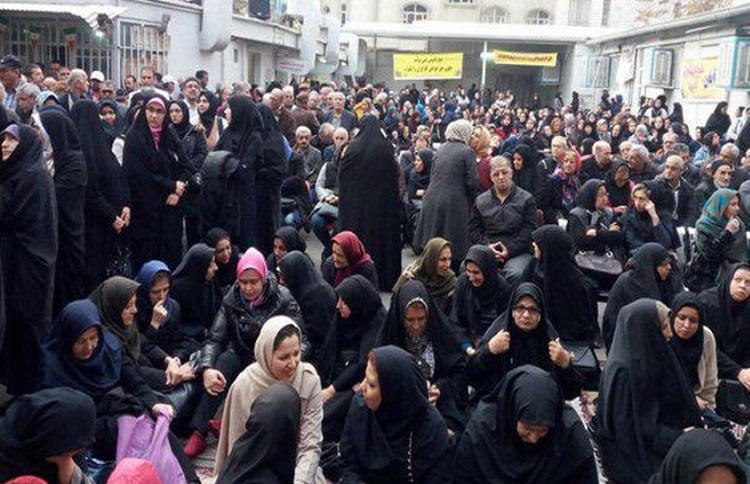
By Jubin Katiraie
The majority of the 120 workers at the Safireh garbage-sorting site in Ahvaz are female heads of household, risking injury and disease in order to put food on their table, but they have very few rights and are frequently subject to late payment and other problems.
The employees work 8 hours per day and earn 2 million Tomans a month, which is far below the poverty line of 9 million Tomans, but worse still they have not been paid since February 2020, at the beginning of the Coronavirus outbreak, so they are under enormous financial strain and have not been given any assistance from authorities.
But the lack of payment is not a new thing. Every year, a contractor, which would be responsible for paying the wages, is selected via auction to run the site, but due to financial problems and disagreements with the government, contractors fail to pay wages most months.
One of the workers there, Hasibeh, 35, has been working there for five years and must get a taxi there each morning because the buses do not run before her shift starts. She has been the head of the household since her husband was paralyzed in a serious accident 15 years ago but found that the pension from the Relief Committee was not enough to meet the family’s expenses, so she had to get a job.
She said: “It is very difficult for an illiterate woman to find a job. I searched for work for a long time, but no one was willing to trust a woman who lived in the slums. Then I came across a garbage-sorting company looking for staff. I never imagined that one day I would be working in a place full of flies and pollution.”
Hasibeh doesn’t sugarcoat the dangers in her line of work, noting that they routinely find syringes and other sharp objects in the rubbish. In 2019, she was stabbed with an infected syringe and hospitalized for 25 days. Now, she must have a test every three months to make sure that she’s healthy. One of her friends was burned and scarred after boiling water spilled on her two years ago, but Hasibeh said the contractor refused to help and published a false report.
Another worker, Tooba, a 40-year-old widow, lived with three children and says life is hard because it is impossible to earn enough to survive, especially when not even their social security insurance is paid on time.
The Women’s Committee of the National Council of Resistance of Iran (NCRI) wrote: “About 4 million women heads of households in Iran have been subjected to double economic pressure as a result of the spread of the Covid-19 pandemic. About 82 percent of the women heads of households were already unemployed and lacked a stable source of income. Meanwhile, the number of women heads of households is on the rise.”
They continued: “The regime took a theatrical measure in April claiming to provide a loan of two million Tomans to these women. But most of them said the loan would not benefit anyone… Presently, the main problems of women heads of households are lack of insurance and unemployment.”
Read More:


